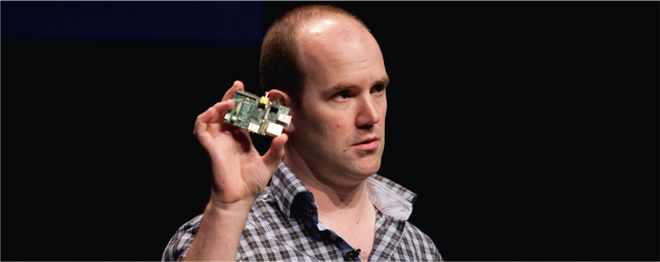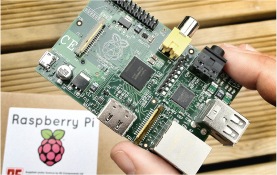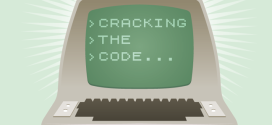The pint-sized Raspberry Pi computer could play a big role in the way kids learn coding and computing skills. Its inventor, Eben Upton, spoke to Moving On about the fruits of his labour…
BY JAMES CHURCHILL
In the last two years, the world of computing and programming has seen the rise of a different kind of computer – the Raspberry Pi. A compact, affordable device that’s easy for students and young coders to use, the Raspberry Pi enables even beginners with no previous experience to learn and explore programming and coding.
The computer itself is very small (about the size of a credit card) and has all its components attached to a single circuit board, so it can be easily connected to a TV or monitor. It is also extremely cheap. It comes in two models, the most expensive being around £30. First released commercially in 2012, it has sold over two million units, and its popularity shows no signs of stopping. Since the release, a large community of Raspberry Pi users has established itself around the world, with budding programmers sharing their creations and offering ‘how-to’ guides for new users.
The computer was created by the Raspberry Pi Foundation, a registered charity that had one goal: to give young people the opportunity to learn about computing in a fun and affordable way.
 Flickr.com/Proptech/CC BY SA 2.0
Flickr.com/Proptech/CC BY SA 2.0
Eben Upton, a founder of the charity and the driving force behind the Raspberry Pi, first came up with the concept whilst he was Director of Studies in Computer Science at the University of Cambridge. Eben and his colleagues began to notice that many students applying for courses had far fewer computing skills than those in previous years. “We found all of a sudden, about a decade ago, that this wonderful stream of pre-trained people who we’d relied on to keep turning up aged eighteen, having already done ten years of programming, had dried up to a trickle.”
The reason for this worrying decline was simple for Eben and his staff to pinpoint. “We had lost that bedroom hacking culture that the old 8-bit micro computers used to instil in people.” Eben explained. During the 1980’s a lot of kids found their feet on computer systems which were on more customisable platforms than a lot of today’s devices. Machines like the ZX Spectrum and the BBC Micro inspired children nationwide and led them into careers in a range of fields from games design to engineering.
The whole idea of the Raspberry Pi was to solve this problem. Eben’s thought process behind it was simple. He said, “If we could create a machine that had some of the properties that those 1980’s machines had, young people would find it very exciting.” It was in 2006 that he and the other key members of the Raspberry Pi Foundation set about making the vision a reality.
Eight years later, the Foundation’s hard work is paying off and under pressure from university lecturers for youngsters to be taught basic computing skills, the Government has decided to change the way computing is taught in primary schools. This September will see the changes implemented as ICT is replaced by Computing in the National Curriculum with the express aim of teaching children aged 7 upwards, skills in programming and engineering.
 Eben attributed the key reason for the changes to much lobbying by Eric Schmidt, the Executive Chairman of Google. He gave the current educational approach towards computer science a dressing down during his lecture at the 2011 Edinburgh TV Festival. Eben recalls the Government’s sudden panic on being informed by industry experts and university lecturers how badly young people’s computing and coding skills had been neglected in this country.
Eben attributed the key reason for the changes to much lobbying by Eric Schmidt, the Executive Chairman of Google. He gave the current educational approach towards computer science a dressing down during his lecture at the 2011 Edinburgh TV Festival. Eben recalls the Government’s sudden panic on being informed by industry experts and university lecturers how badly young people’s computing and coding skills had been neglected in this country.
With the new curriculum coming into force this September, it is possible that the Raspberry Pi could soon become a regular teaching tool in the classroom as well as in kids bedrooms, “The beauty of the Raspberry Pi is that it’s cheap enough for school kids to buy, but schools could also subsidise children who can’t afford it.”
Eben told Moving On that the Government also needs to prepare schools and teachers properly for the new National curriculum. “The government needs to invest in teacher training.Teachers are professionals. They want to do a good job. It’s massively unfair to inflict an enormous curriculum change on them without proper investment.”
Although the Government has finally acknowledged the real need for changes in the teaching of computing, groups like The Raspberry Pi Foundation have already shown that if you give kids the opportunity to grasp technology and the freedom to express themselves without restraint, they will go forward with it and learn the vital skills needed to reboot the computer science sector in this country.
 Moving On magazine Careers and Qualifications for School Leavers
Moving On magazine Careers and Qualifications for School Leavers



